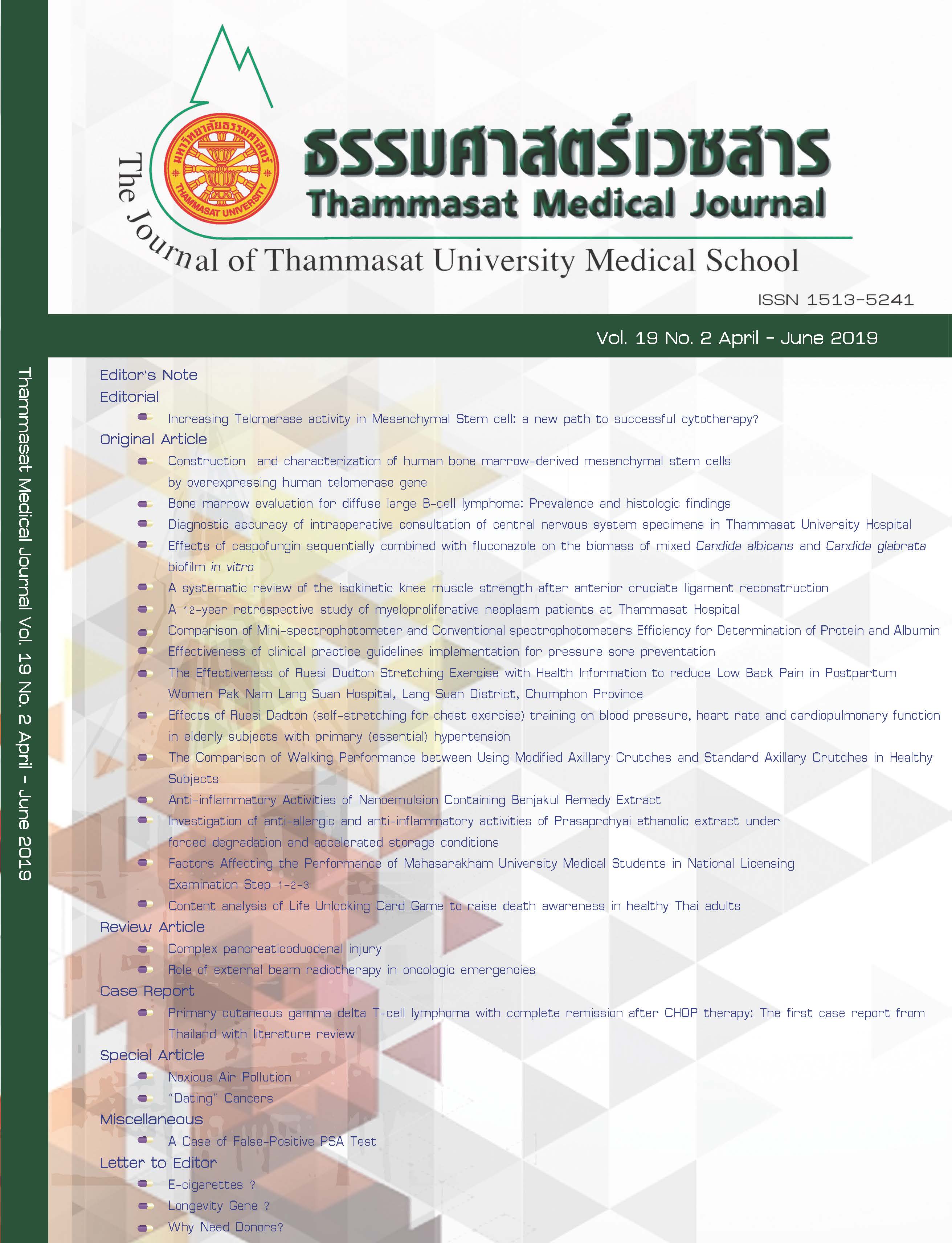Investigation of anti-allergic and anti-inflammatory activities of Prasaprohyai ethanolic extract under forced degradation and accelerated storage conditions
Keywords:
Accelerated storage conditions, Anti-allergic, Anti-inflammatory, Forced degradation, Prasaprohyai remedyAbstract
Introduction: Prasaprohyai (PPY) is a Thai traditional medicine remedy in the National List of Essential Medicines. It has long been used to treat fever, cold and asthma. However, PPY ethanolic
extract has never been reported on the chemical constituents and biological stability. Therefore, this study was to investigate the stability testing on stress and accelerated conditions of PPY ethanolic extract regarding the anti-allergic and anti-inflammatory activities.
Method: PPY ethanolic extract was tested by force degradation method on stress conditions following the International Conference on Harmonisation (ICH) recommended such as moisture-, acid- and alkaline-hydrolysis, heat and oxidation. PPY ethanolic extract was also stored under accelerated conditions (40°C, 75% RH) for 6 months. The constituents of PPY ethanolic extract of all tests were evaluated by using gas chromatography-mass spectrometry (GC-MS). Anti-allergic activity was investigated by measuring the release of β-hexosaminidase from RBL-2H3 cells. Anti-inflammatory activity was also investigated by determining the production of nitric oxide (NO) from RAW 264.7 cells.
Results: Under stressed conditions, PPY ethanolic extract was unstable regarding anti-allergic and anti-inflammatory activities except for alkaline-condition. The extract showed stability of NO production inhibition activity when compared with normal condition. Under accelerated storage conditions, PPY ethanolic extract was stable on both anti-allergic and anti-inflammatory activities. Its chemical content was also stable when compared with day 0.
Conclusion: Force degradation test is benefit for pre-formulation or selection of dosage form of PPY. It is concluded that the dosage form of PPY should avoid moisture, high temperature, oxidation and acid conditions. For accelerated storage conditions, PPY ethanolic extract is stable at least two years at room temperature without loss of in vitro anti-allergic and anti-inflammatory activities when it is stored in a tight container and protected from light. This study supports the preparation of PPY dosage form for treatments of fever, cold and allergy.



